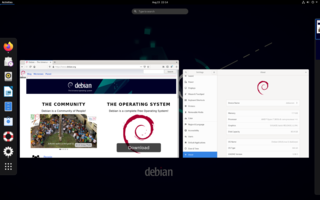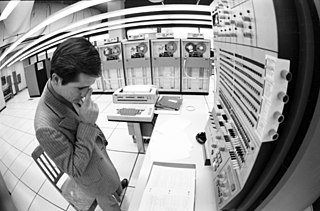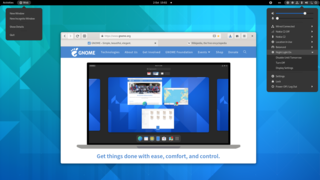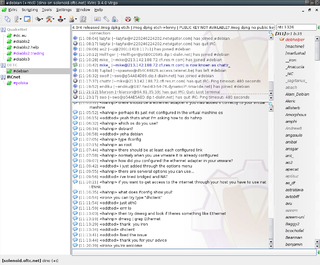| Developer(s) | Pink Software & Delphidreams. |
|---|---|
| Initial release | April 1985 |
| Stable release | 5.0.0.969 [1] / 16 August 2016 |
| Written in | Delphi |
| Operating system | Windows |
| Type | Accounting |
| License | GPL |
| Website | www |
TurboCASH is an accounting software package, [2] [ self-published source? ] developed by a project team headed by Philip Copeman, a South African. It has been continuously developed since April 1985, [3] and was released under the GNU General Public License in July 2003. As of version 5, the software requires an annual subscription fee.
TurboCASH is aimed at the small to medium-sized business market, placing it between a home finances package and an ERP package. Its core functions are a general ledger, posting transactions into accounts, and producing financial reports. Plugin technology enables developers to extend the system.
TurboCASH integrates through tab delimited imports and exports. Developed with Delphi, it runs natively on Windows, and a version has been released that runs under Wine for Linux. [4] A version for CrossOver is also under development for MacOS. [5]
According to the company, TurboCASH has a community of over 120,000 users. [6] TurboCASH communities are found in South Africa, the Netherlands, the United Kingdom, Belgium, United States, Canada, India, Indonesia and Australia. It has been translated or partially translated into 23 languages including Afrikaans, Croatian, Dutch, Greek, Indonesian and Spanish. [7]
TurboCASH versions prior to 5.0 utilize a Paradox/BDE database, criticized because of its age and slowness. Its developers claim that in a network of one to five users, TurboCASH's target market, Paradox/BDE works well and has a long record of stability and easy installation. [8] Version 5.0 is based on the Firebird database, alleviating this criticism. [9]
TurboCASH 4 claims to be open-source, the last source code release is 5 January 2018. TurboCASH 4 is also criticized by some open-source advocates, as proprietary applications are required to compile TurboCASH 4. A project to implement the system in Javascript is underway.

Debian, also known as Debian GNU/Linux, is a GNU/Linux distribution composed of free and open-source software, developed by the community-supported Debian Project, which was established by Ian Murdock on August 16, 1993. The first version of Debian (0.01) was released on September 15, 1993, and its first stable version (1.1) was released on June 17, 1996. The Debian Stable branch is the most popular edition for personal computers and servers. Debian is also the basis for many other distributions, most notably Ubuntu.

GNU is an extensive collection of free software, which can be used as an operating system or can be used in parts with other operating systems. The use of the completed GNU tools led to the family of operating systems popularly known as Linux. Most of GNU is licensed under the GNU Project's own General Public License (GPL).

GnuCash is an accounting program that implements a double-entry bookkeeping system. It was initially aimed at developing capabilities similar to Intuit, Inc.'s Quicken application, but also has features for small business accounting. Recent development has been focused on adapting to modern desktop support-library requirements.

A Linux distribution is an operating system made from a software collection that includes the Linux kernel and, often, a package management system. Linux users usually obtain their operating system by downloading one of the Linux distributions, which are available for a wide variety of systems ranging from embedded devices and personal computers to powerful supercomputers.
Darwin is an open-source Unix-like operating system first released by Apple Inc. in 2000. It is composed of code derived from NeXTSTEP, BSD, Mach, and other free software projects' code, as well as code developed by Apple.

GNOME Evolution is the official personal information manager for GNOME. It has been an official part of GNOME since Evolution 2.0 was included with the GNOME 2.8 release in September 2004. It combines e-mail, address book, calendar, task list and note-taking features. Its user interface and functionality is similar to Microsoft Outlook. Evolution is free software licensed under the terms of the GNU Lesser General Public License (LGPL).

The GNU Project is a free software, mass collaboration project that Richard Stallman announced on September 27, 1983. Its goal is to give computer users freedom and control in their use of their computers and computing devices by collaboratively developing and publishing software that gives everyone the rights to freely run the software, copy and distribute it, study it, and modify it. GNU software grants these rights in its license.

Within the free software and the open-source software communities there is controversy over whether to refer to computer operating systems that use a combination of GNU software and the Linux kernel as "GNU/Linux" or "Linux" systems.

Free Pascal Compiler (FPC) is a compiler for the closely related programming-language dialects Pascal and Object Pascal. It is free software released under the GNU General Public License, with exception clauses that allow static linking against its runtime libraries and packages for any purpose in combination with any other software license.

Linux is a family of open-source Unix-like operating systems based on the Linux kernel, an operating system kernel first released on September 17, 1991, by Linus Torvalds. Linux is typically packaged in a Linux distribution.

gNewSense is a Linux distribution that was active from 2006 to 2016. It was based on Debian, and developed with sponsorship from the Free Software Foundation. Its goal was user-friendliness, but with all proprietary and non-free software removed. The Free Software Foundation considered gNewSense to be composed entirely of free software.
GNU variants are operating systems based upon the GNU operating system. According to the GNU project and others, these also include most operating systems using the Linux kernel and a few others using BSD-based kernels.

In the 1950s and 1960s, computer operating software and compilers were delivered as a part of hardware purchases without separate fees. At the time, source code, the human-readable form of software, was generally distributed with the software providing the ability to fix bugs or add new functions. Universities were early adopters of computing technology. Many of the modifications developed by universities were openly shared, in keeping with the academic principles of sharing knowledge, and organizations sprung up to facilitate sharing. As large-scale operating systems matured, fewer organizations allowed modifications to the operating software, and eventually such operating systems were closed to modification. However, utilities and other added-function applications are still shared and new organizations have been formed to promote the sharing of software.
Linux began in 1991 as a personal project by Finnish student Linus Torvalds: to create a new free operating system kernel. The resulting Linux kernel has been marked by constant growth throughout its history. Since the initial release of its source code in 1991, it has grown from a small number of C files under a license prohibiting commercial distribution to the 4.15 version in 2018 with more than 23.3 million lines of source code, not counting comments, under the GNU General Public License v2.

Jami is a SIP-compatible distributed peer-to-peer softphone and SIP-based instant messenger for Linux, Microsoft Windows, OS X, iOS, and Android. Jami was developed and maintained by the Canadian company Savoir-faire Linux, and with the help of a global community of users and contributors, Jami positions itself as a potential free Skype replacement.

GNOME, originally an acronym for GNU Network Object Model Environment, is a free and open-source desktop environment for Linux operating systems.

Linux-libre is a modified version of the Linux kernel that contains no binary blobs, obfuscated code, or code released under proprietary licenses. In the Linux kernel, they are mostly used for proprietary firmware images. While generally redistributable, binary blobs do not give the user the freedom to audit, modify, or, consequently, redistribute their modified versions. The GNU Project keeps Linux-libre in synchronization with the mainline Linux kernel.

KVIrc is a graphical IRC client for Linux, Unix, Mac OS and Windows. The name is an acronym of K Visual IRC in which the K stands for a dependency to KDE, which became optional from version 2.0.0. The software is based on the Qt framework and its code is released under a modified GNU General Public License.